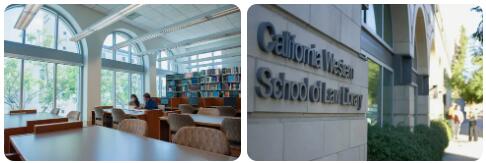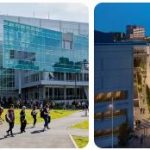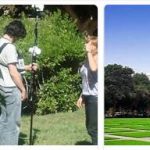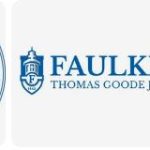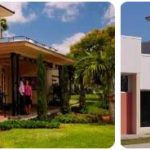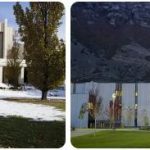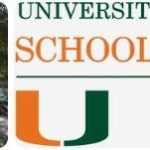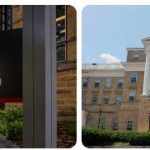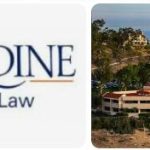The University of San Diego School of Law was founded in 1954, making it one of the oldest law schools in the city. Initially, the school was housed in the basement of St. Thomas Aquinas Church and offered a three-year night program to 24 students. In 1958, USD School of Law moved to its current location on Linda Vista Road and began offering a four-year day program as well. Over the years, the school has grown to become one of the top law schools in California and is currently ranked #50 by U.S News & World Report.
In 1973, USD School of Law developed a full-time legal clinic that allowed students to gain practical experience while providing free legal services to underserved communities in San Diego County. Since then, USD School of Law has continued to expand its clinical offerings with programs such as Health Law Clinic, Center for Public Interest Law and International Human Rights Clinic. The school is also home to several academic centers such as Center for Pro Bono and Nonprofit Leadership as well as numerous student-run organizations dedicated to public service and advocacy work. Today, USD School of Law has an enrollment of over 700 students who are able to pursue their passions through specialized coursework and hands-on experiences outside the classroom.
University of San Diego School of Law is located in the state of California. As one of the leading law programs, University of San Diego School of Law has a high average LSAT score of 158-162 when recruiting new students. As a return, the median starting salary for law graduates reaches $85,000 per year. See the following table for detailed admissions information and career profiles of University of San Diego School of Law.
Admissions: University of San Diego
The University of San Diego School of Law boasts an impressive admissions rate, with only 35.6% of applicants being accepted in 2016. The average GPA for incoming students was 3.6, and the median LSAT score was 157. The school is committed to creating a diverse student body, with minorities comprising 29% of the student population. Additionally, the school offers a unique program called the Law Fellows Program that provides full-tuition scholarships to promising students from diverse backgrounds who are dedicated to making a difference in their communities. This program has helped create an even more diverse and vibrant academic environment at USD School of Law. In addition to the traditional J.D program, USD also offers several joint degree programs such as a J.D/MBA and a J.D/Master’s in Public Administration for those interested in pursuing multiple areas of study simultaneously.
| Fall 2019 Admissions and Enrollment Statistics | |
|---|---|
| Total number of full- and part-time applicants | 4,404 |
| Total number of full- and part-time acceptances | 1,504 |
| Overall acceptance rate | 34.2% |
| Total number of full- and part-time first-year students enrolled | 321 |
| Number of full-time program applicants | 4,010 |
| Number of full-time program acceptances | 1,416 |
| Full-time acceptance rate | 35.3% |
| Number of first-year full-time students enrolled | 281 |
| Number of part-time program applicants | 394 |
| Number of part-time program acceptances | 88 |
| Part-time acceptance rate | 22.3% |
| Number of first-year part-time students enrolled | 40 |
| Fall 2019 GPA and LSAT Scores | |
| 25th-75th percentile GPA scores for all students | 3.22-3.59 |
| 25th-75th percentile LSAT scores for all students | 158-162 |
| 25th-75th percentile undergraduate GPA for full-time students | 3.24-3.6 |
| 25th-75th percentile LSAT scores for full-time students | 158-162 |
| 25th-75th percentile undergraduate GPA for part-time students | 3.1-3.56 |
| 25th-75th percentile LSAT scores for part-time students | 156-160 |
Careers: University of San Diego
| Bar Statistics (Winter and Summer 2018 administrations) | |
|---|---|
| State where the greatest number of first-time test takers took the bar | CA |
| School’s bar passage rate for first-time test takers | 78.9% |
| Statewide bar passage rate for first-time test takers | 70.7% |
| Class of 2018 Graduates | |
| Total graduates | 327 |
| Graduates employed at graduation | N/A |
| Graduates known to be employed nine months after graduation | 98.4% |
| Starting Salaries of 2018 Graduates Employed Full-time | |
| 25th percentile private sector starting salary | $65,000 |
| Median private sector starting salary | $85,000 |
| 75th percentile private sector starting salary | $135,000 |
| Percent in the private sector who reported salary information | 68% |
| Median public service starting salary | $60,000 |
| Areas of Legal Practice (Class of 2018) | |
| Percent employed in academia | 2.0% |
| Percent employed in business and industry | 18.0% |
| Percent employed in government | 13.0% |
| Percent employed in all judicial clerkships | 4.0% |
| Percent employed in law firms | 56.0% |
| Percent employed in public interest | 6.0% |
| Percent employed in an unknown field | 1.0% |
| Percent employed in a judicial clerkship by an Article III federal judge | 2.7% |
| 2018 Graduates Employment Location | |
| Graduates employed in-state | 88% |
| Graduates employed in foreign countries | 1% |
| Number of states where graduates are employed | 17 |
| New England (CT, ME, MA, NH, RI, VT) | 1.0% |
| Middle Atlantic (NY, NJ, PA) | 0.3% |
| East North Central (IL, IN, MI, OH, WI) | 0.7% |
| West North Central (IA, KS, MN, MO, NE, ND, SD) | 0.0% |
| South Atlantic (DE, DC, FL, GA, MD, NC, SC, VA, WV) | 3.7% |
| East South Central (AL, KY, MS, TN) | 0.3% |
| West South Central (AR, LA, OK, TX) | 0.3% |
| Pacific (AK, CA, HI, OR, WA) | 89.7% |
| Mountain (AZ, CO, ID, MT, NV, NM, UT, WY) | 2.0% |
| Employment location unknown | 1.3% |
| Career Services | |
| (Data appear as originally submitted by this school) | |
| Career services operations | Career Services provides counseling and programs to help students achieve their career objectives. Annually, 225 interviewers from 30 states participate in the recruiting process for summer positions and post-graduate placement. USD alumni support many career programs, providing opportunities for education and networking. |
| Job Type | |
| Bar admission required or anticipated (e.g., attorney and corporate counsel positions, law clerks, judicial clerks) | 83.0% |
| J.D. preferred, law degree enhances position (e.g., corporate contracts administrator, alternative dispute resolution specialist, government regulatory analyst, FBI special agent) | 6.0% |
| Professional/other (jobs that require professional skills or training but for which a J.D. is neither preferred nor particularly applicable; e.g., accountant, teacher, business manager, nurse) | 6.0% |
| Nonprofessional/other (job that does not require any professional skills or training or is taken on a temporary basis and not viewed as part of a career path) | 3.0% |
